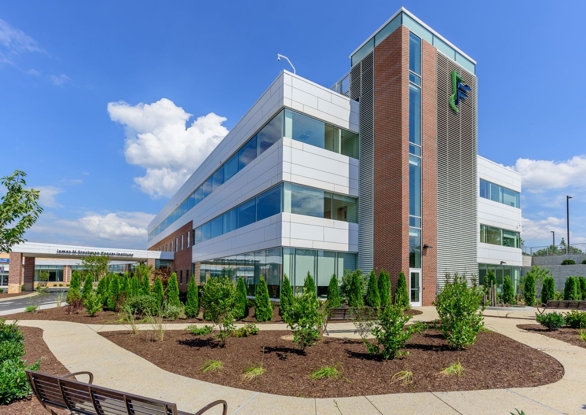About Colon & Rectal Cancer
Colon & Rectal Cancer (also known as Colorectal Cancer) is the second leading cause of cancer death in the United States. At Frederick Health, we’re committed to providing a treatment experience that focuses on you.
For more information or to schedule an appointment please contact us at
240-566-4820
Colon & Rectal Cancer Symptoms
Colon & rectal cancer might not cause symptoms right away, but if it does, it may cause one or more of the following:
- A change in bowel habits, such as diarrhea, constipation, or narrowing of the stool, that lasts for more than a few days
- A feeling that you need to have a bowel movement that's not relieved by having one
- Rectal bleeding with bright red blood
- Blood in the stool, which might make the stool look dark brown or black
- Cramping or abdominal (belly) pain
- Weakness and fatigue
- Unintended weight loss
Colon & Rectal Cancer Screenings & Prevention
Routine screenings are your best defense in the fight against colon & rectal cancer and the American Cancer Society recommends that people at average risk start regular screening at age 45.
A “screening” is the process of looking for cancer before a person has any symptoms—and there are different types available. Sensitive at-home tests are a convenient option that helps look for signs of cancer in a person’s stool. A colonoscopy is another option that can find cancer in the colon or rectum but can also prevent cancer from developing.
Talk with your provider to learn more about when you should get a colonoscopy and schedule other important screenings that make sense for you. You can also reach out to our Surgical Oncology team for any additional concerns you may have.
More Information on Colon & Rectal Cancer
Common Risk Factors
Understanding your risk factors for colon & rectal cancer can help you to prevent it. Both men and women are at risk for developing these forms of cancer with most cases occurring in people over the age of 50—but rates are rising in young adults. Ethnicity, lifestyle, and family history can increase your risk and may cause a change in when you should start getting screened. For more information, please review our informative fact sheet.
How do I lower my risk?
Maintaining a healthy diet & weight, exercising regularly, not smoking, and limiting alcohol consumption have been proven to help lower your risk and protect your colorectal health. If you have a family history of colon & rectal polyps or cancer, it's important to talk with your provider to discuss when you should start getting screened. You might also benefit from genetic counseling, which will review your family health history to help guide you on the path to better health and overall wellness. Regular colonoscopies will also lower your risk by removing small growths before cancer develops.
For more information or to schedule an appointment please contact us at
240-566-4820.
.png)

